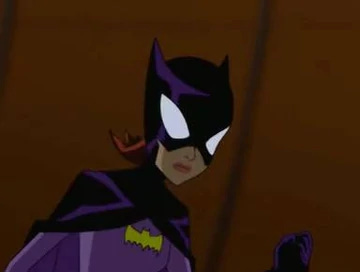Warner Brothers Discovery, a full quarter into its latest corporate iteration, has shelved its straight-to-streaming movies like Batgirl, Wonder Twins and a Scooby Doo movie. They’d already spent $90 million on Batgirl but, in favor of taking a tax loss, CEO David Zaslav told Variety, “….we’re not going to put out a movie unless we believe in it.’
Welcome to streaming’s new era, where economic return trumps being able to tell investors that you’ve signed up new subscribers. Every hot growth industry goes through this and from the consumer side it generally means fewer perks, fewer options and higher prices. This is why Uber and Lyft went from nice cars, low prices and free bottles of water to the “gas, grass or ass,” paid hitchhiking services they’ve become.
Streaming, which really started as Netflix’s DVD-by-mail service in the early 2000s, has ad a longer road. First, Netflix had to kill the video stores. They started offering streaming around 2007, but if The Middlebrow memory serves, a lot of us kept up with the DVDs for a few years. Eventually, streaming competitors emerged and the basic cable subscription went the way of the Blockbuster card.
The pandemic shut down movie theaters and with so many of the streaming services owned by the studios making the movies, streaming became a cheaper and convenient way to see blockbusters made for selling tickets and concessions. HBO Max really led the way here, with movies like Wonder Woman 84 available to subscribers at no extra cost.
That is predictably now over. Movies have to sell tickets again and film production/streaming is now reckoning with the constant problem of producing art and entertainment in the online world — how much of it do you have to give away and how much can you give away?
Back around 2010, with streaming a much more normal part of our lives, a film critic friend predicted to me that there would soon be a service that would offer “Every movie ever made, any time, whenever you want to see it.” Maybe he meant Rutube, a Russian Youtube knockoff where the servers flowed with pirated video from around the world. Commercial streaming eschewed the Russian model of blatant text for the Balkan model of… Balkanization. Studios and owners of film libraries formed alliances around new brands and then changed their minds and left old partnerships for new ones, meanwhile the media industry continued to consolidate.
It became clear over time that movie and television fans would need to subscribe to several streaming platforms, but could probably save money by cutting out cable television along the way. Then there’s the matter of keeping up with the changes. Hulu originally had all the NBC and Disney stuff, but that’s all gone to Peacock and Disney+ (except where it hasn't). Marvel superhero shows once lived on Netflix but haven’t since Disney bought the company. Now Disney has all the Marvel movies but not Spider-Man, which is still with Sony. But Disney has The Simpsons after buying Fox.
All of this stuff streams over the same internet. The barriers are corporate, but the internet is now less public space than private shopping mall, with its wares parceled into distinct enterprises.
An obvious question for Warner Brothers is that if this Batgirl movie has already been made and the money spent, why not ship it out on the off chance that somebody likes it or it’s so bad it wins a cult following? How much worse could it be than 1997’s Batman & Robin? To Zaslav, it’s not worth the risk because Warner has so badly handled its DC superhero properties compared to the more focused and successful Marvel Studios offerings. He’s afraid an embarrassing release will kill the brand.
It remains to be seen if he can keep the movie away from audiences forever, though. Online fans famously bullied Warner into releasing the way-too-long “Snyder cut” of Justice League (also given away to HBO Max subscribers) so maybe they can be bullied into giving away Batgirl too.


